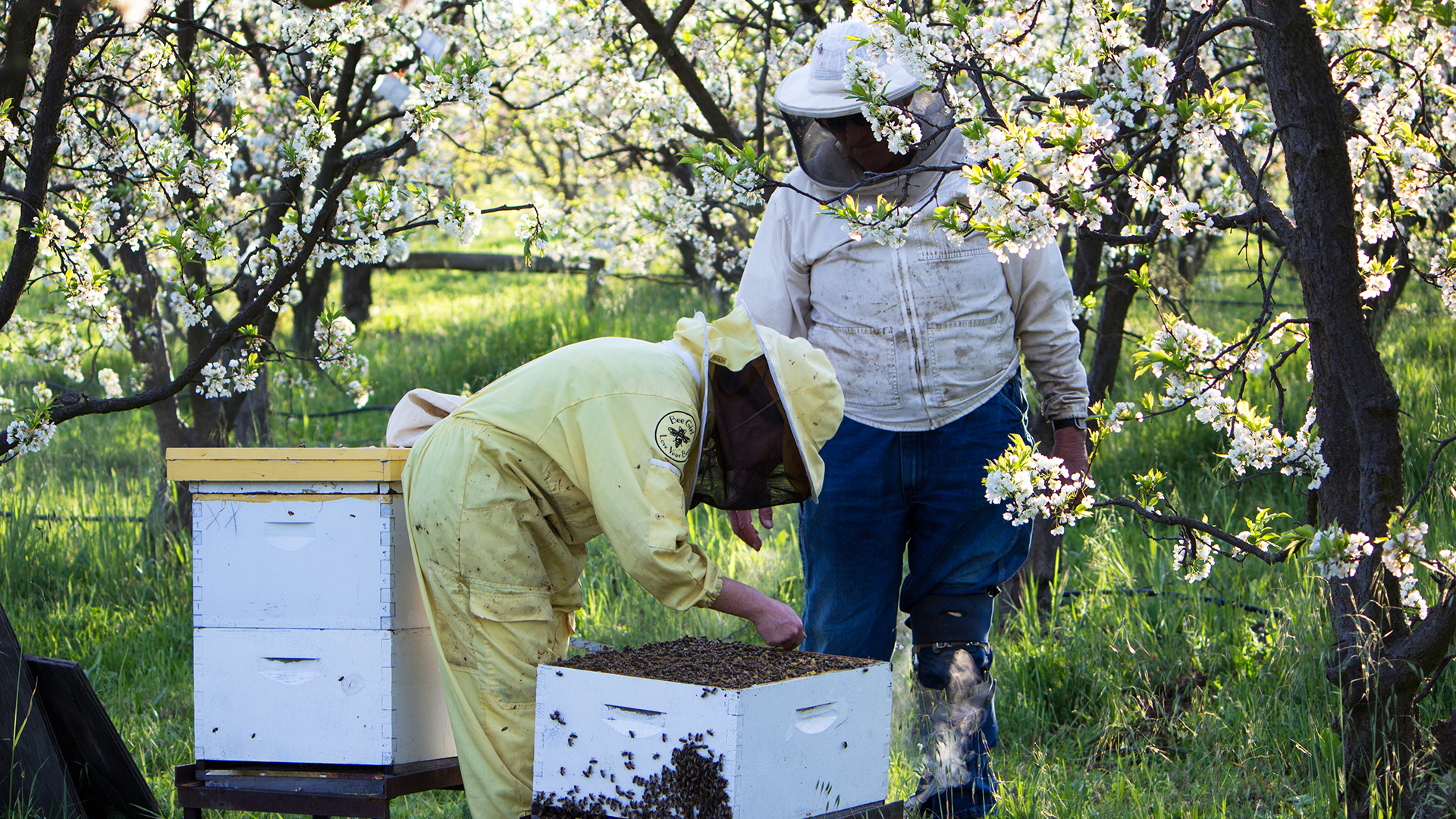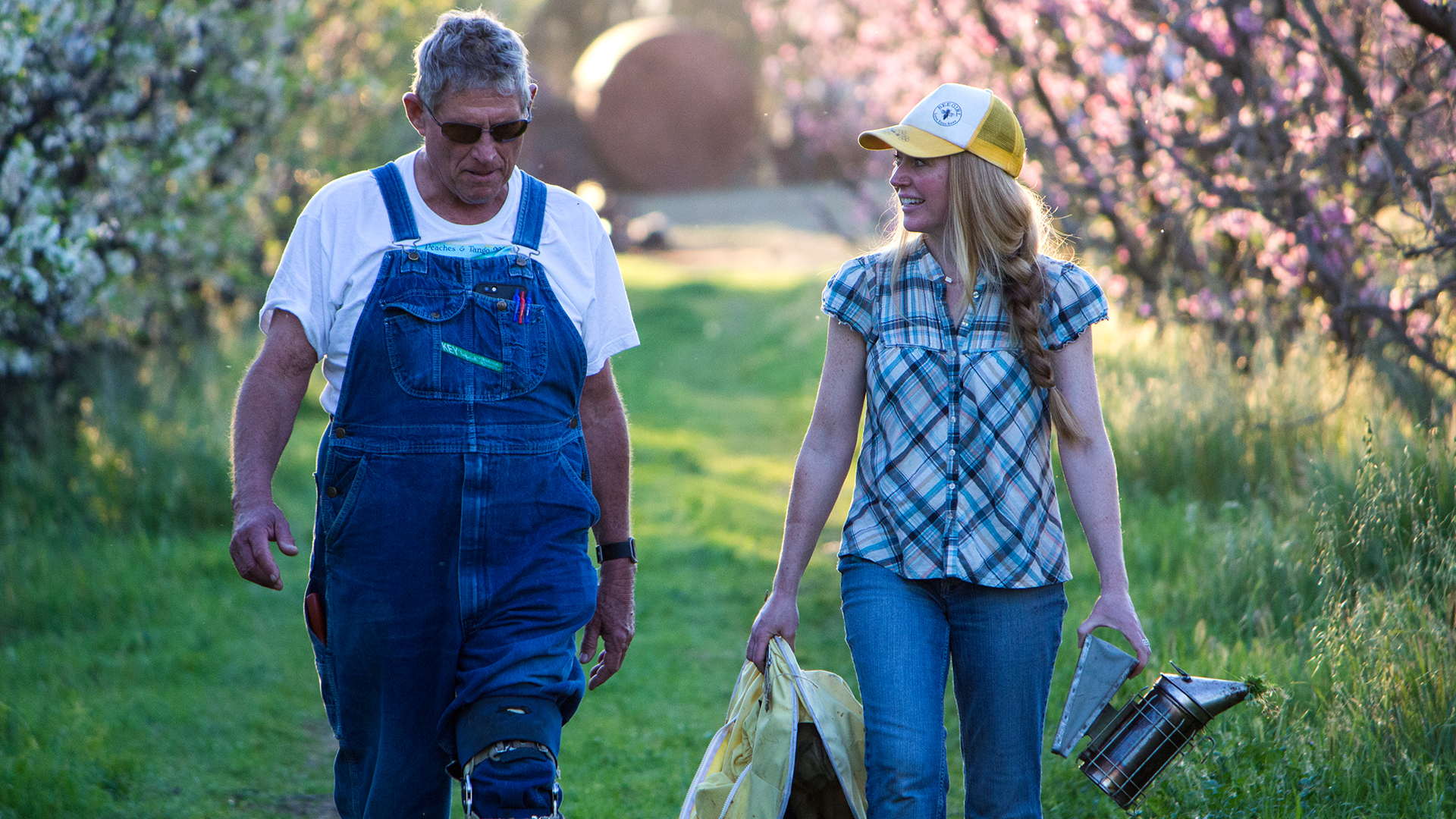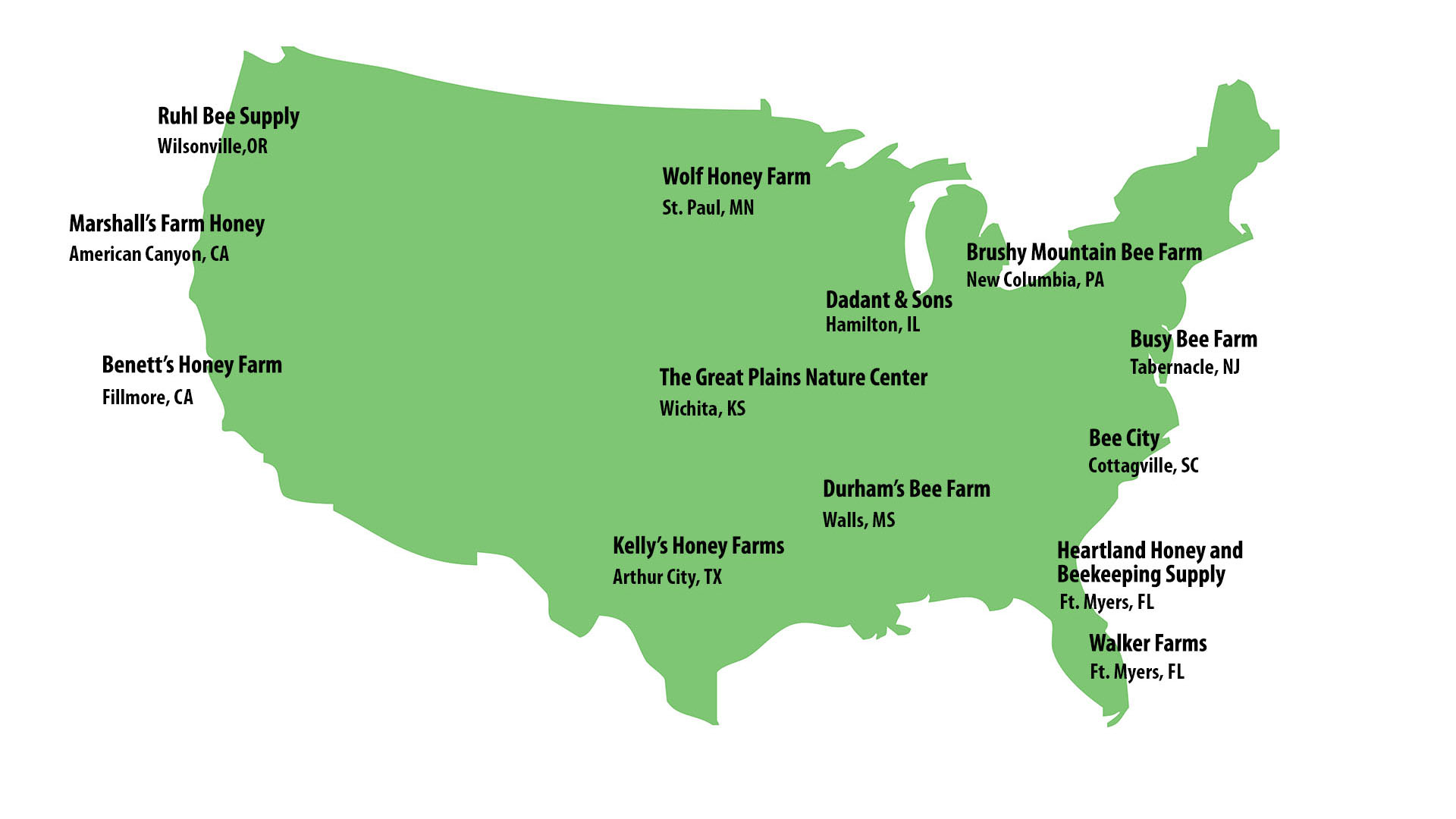A papaya plantation dream in Hawaii led to a thriving organic farm in California.
When Al Courchesne was growing up in California, he and his friends would use the term “farmer” as an expression of ridicule to poke fun at each other. He considers this the folly of youth. “Now I’m a farmer. And I call myself Farmer Al.” He wears the title with pride.
Donning his signature blue overalls, Farmer Al is surrounded by his delicious fruit on Frog Hollow Farm — a 200-acre farm located in Brentwood, California. Formerly known as Brentwood Farms, he renamed it when he decided to go full-organic, to better showcase the land's connection with nature. The name Frog Hollow comes from the many frogs in the nearby canal that arrive when it fills with water from the California Delta. The farm is home to stunning orchards that produce peaches, nectarines, cherries, apricots, plums, olives and more.
Farmer Al got into farming in a completely different way than the farmers who inherit land and knowledge from their ancestors. After high school he went to college at University of California, Berkeley, studying anthropology and Spanish (which, serendipitously, he uses daily on his farm). Straight out of school, Al accepted a job at Punahou School in Honolulu, where he taught on and off for about 10 years. He also served in the military during the Vietnam War; it wasn’t until he returned from a tour of duty that he became interested in agriculture.
Al’s good friend introduced him to the idea of farming. Their plan was to have a 100-acre papaya plantation on the Big Island of Hawaii. “We were going to make millions,” Al jokes. “The realization that farming was my life was instantaneous, the day we decided to become papaya farmers.” They rushed to the store, bought two papayas, garden supplies and planted seeds the same day. “Within a few hours, fulfillment happened. Only a 28-year-old kid could do it like that. I had nothing to lose.” Within a few months, they had a papaya farm near an old Hawaiian cemetery, where they farmed together for about a year. A couple of years later, after parting ways with his friend, he found Frog Hollow Farm.
Living and working less than an hour from where he grew up, Farmer Al feels right at home among the nearby organic farmers. It's a tight-knit community, in terms of their passion for thoughtful agriculture and growing quality crops. Al takes great pride in producing food organically. “It’s hard work. It’s probably more expensive, but you’re taking care of your resources. That’s worth millions.” For Farmer Al, his process has a lot of meaning, making him feel part of something bigger than himself.
Almost all the tree crops on his farm require cross-pollination — one variety of fruit pollinating another. This process is carried out by honeybees that transfer pollen from one plant to another. “We depend on bees. And we depend on great relationships with beekeepers.” By creating strong connections with beekeepers who are passionate about the environment, the local community and producing great food, he is able to get enough bees to pollinate his crops.
All of this helps Farmer Al sleep happily at night. If you’re interested in organic farming, Frog Hollow Farm (and thousands of other farms across the country) offers apprenticeship programs during the peak growing season. If you want to start your own garden, Al suggests researching what typically does well in your climate and soil. And if you need his advice after-hours, you can find Farmer Al hidden in his orchards, enjoying a juicy California peach. Or better yet, five of them.






